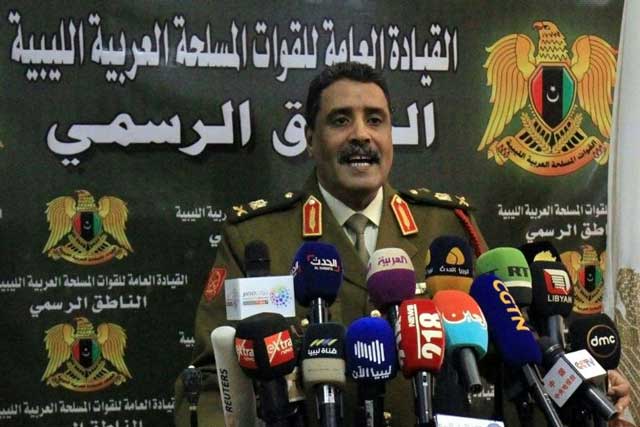
Tripoli, Libya | AFP | Libyan strongman Khalifa Haftar’s capture of the strategic city of Sirte on Monday was a major setback for Tripoli’s UN-recognised government, analysts say.
The fresh advance by Haftar’s self-styled Libyan National Army comes as Turkey deploys troops — 35 so far, in a training capacity — to bolster the beleaguered Government of National Accord.
Diplomatic efforts to contain the spiralling crisis saw Turkey and Russia on Wednesday call for a ceasefire, despite supporting opposing sides of the conflict.
But Libya’s rival factions have not yet responded.
Sirte was controlled by forces loyal to the GNA after they expelled Islamic State jihadists from the coastal city in 2016.
But after a local Salafist militia switched sides, the city fell without fighting to Haftar’s Libya Arab Armed Forces (LAAF), which has been fighting to seize Tripoli from the GNA since last April.
The hometown of Moamer Kadhafi, Sirte paid a heavy price after the longstanding dictator was ousted in a 2011 NATO-backed rebellion.
Many in Sirte welcomed Haftar’s forces as they did not support the GNA — whose forces are mostly former anti-Kadhafi rebels from Misrata, a city between Sirte and Tripoli.
– New front? –
Along with undermining the morale of GNA forces, “the loss of Sirte will significantly reduce (their) military and strategic position vis-a-vis” the LAAF, said Jalel Harchaoui, a researcher at the Clingendael Institute.
Since Haftar launched his Tripoli offensive, his troops have also mobilised to block any potential counter attack on Libya’s “oil crescent” in the northeast, under Haftar’s control since 2016.
Haftar feared GNA forces could use Sirte’s airbase to carry out strikes on his eastern stronghold, according to Harchaoui.
Threats from Sirte against the LAAF, until recently known as the Libyan National Army, “constituted a kind of sword of Damocles hanging over Haftar,” he said.
The loss of Sirte also puts pressure on the eastern flank of pro-GNA forces defending the capital in Tripoli’s southern suburbs, Harchaoui added.
According to Emad Badi of the Middle East Institute, Haftar is looking to turn Misratan forces towards Sirte in order to weaken Tripoli’s defences.
His forces may look to open a new front against Misrata, 200 kilometres (120 miles) east of Tripoli, which previously blocked their advance west, according to Hamish Kinnear, an analyst at Verisk Maplecroft.
“Misratan militias will prioritise protecting their home city” if the LAAF advances on it, he said.
“This will put enormous pressure on the GNA’s war effort in Tripoli itself.”
– ‘Important setback’ –
“Strategically, the loss of Sirte makes it much more difficult for GNA-affiliated forces to harass Haftar’s supply lines,” said Wolfram Lacher, a researcher at the German Institute for International and Security Affairs.
The loss of Sirte comes as Turkey is sending troops to support the GNA against Haftar, who is supported by Ankara’s rivals the United Arab Emirates and Egypt.
Russia is also accused of sending fighters to support Haftar, something Moscow denies.
While Turkish President Recep Tayyip Erdogan has made grand pronouncements about supporting Tripoli, in reality he will be forced to proceed slowly, Harchaoui said.
Turkey may decide to defend limited territory, such as downtown Tripoli and other enclaves, he said.
But “the loss of Sirte makes Turkish support all the more urgent for the GNA,” said Lacher.
While Turkish drones have resumed attacking pro-Haftar forces in recent days, the GNA still needs greater air capabilities, Lacher told AFP.
Advisers are already helping GNA troops fly the drones and jam signals from Haftar’s unmanned aircraft, experts say.
The Turkish deployment may in large part be a propaganda move aimed at halting Haftar’s Tripoli offensive, the analysts believe.
Erdogan on Wednesday appeared alongside his Russian counterpart Vladimir Putin in Istanbul to call for a ceasefire in Libya from Sunday.
The pair united to issue a joint statement calling for a truce “supported by the necessary measures to be taken for stabilising the situation on the ground”.
Haftar meanwhile was in Rome Wednesday for talks with Italian premier Giuseppe Conte.
 The Independent Uganda: You get the Truth we Pay the Price
The Independent Uganda: You get the Truth we Pay the Price





